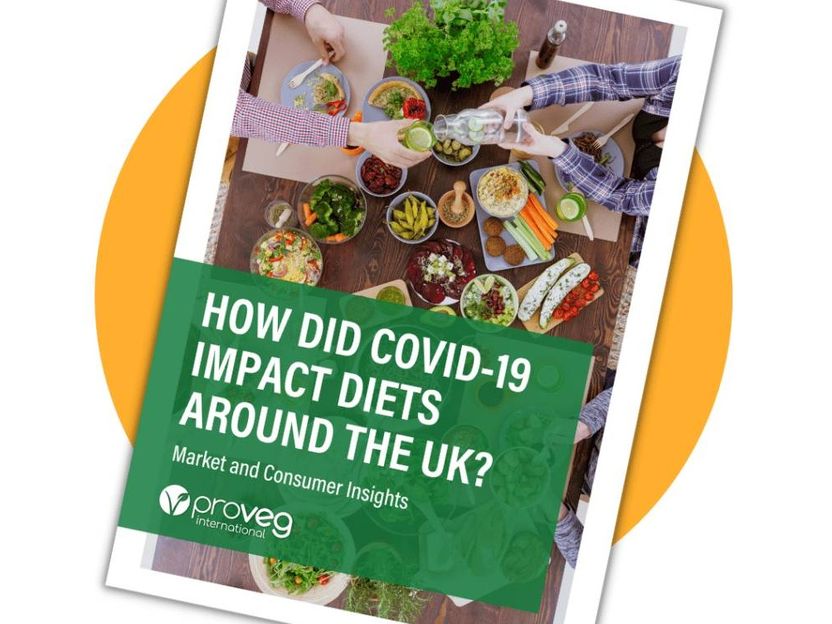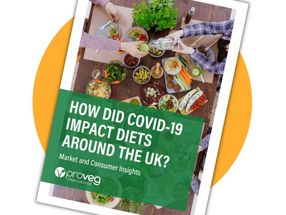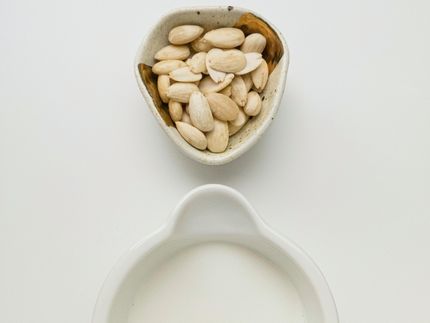COVID led people to eat more plant-based foods – and stick with it
Pandemic triggered uptick in plant-based food consumption, ProVeg survey finds
A new report published today by global food awareness organisation, ProVeg International, has found that a significant number of people began eating more plant-based foods during the height of the Covid-19 pandemic. The report, called “How did Covid-19 impact diets around the UK?”, also found that the switch to more plant-based eating continued as the pandemic subsided.

Photo by LikeMeat on Unsplash

ProVeg International


In September 2022, ProVeg International surveyed 1,000 UK residents about their eating habits before, during, and after the pandemic in order to compile the report. The results were conclusive: our diets have changed, and it seems for the better.
The survey found that, during the height of the pandemic:
- 46% of people agreed or strongly agreed that their eating habits had changed substantially;
- 39% said they ate a greater variety of foods;
- 26% agreed or strongly agreed that they ate fewer animal-based foods;
- 26% of people agreed or strongly agreed that they ate more plant-based foods;
- 18% of people agreed or strongly agreed that they had both increased consumption of plant foods and decreased consumption of animal products; and
- Of this 18%, 70% agreed or strongly agreed that they had maintained their new eating habits since the end of COVID restrictions, while only 28% agreed or strongly agreed that they had returned to their old eating habits
“These results clearly illustrate a move towards eating more plant-based foods and a move away from animal-based products,” Stephane Jaczniakowska-McGirr, Head of Corporate Engagement at ProVeg, said. “With this in mind, the future certainly looks bright for dietary change in favour of more plant-based foods in the UK,” she said.
COVID impacted all areas of the food-supply chain, affecting farm production, food processing, logistics, and the transportation of supplies to stockists. As a direct result, consumers had to alter their purchasing habits and preferences, swapping some of their favourite foods for other options, and even trying some foods for the first time. Health motivations and a desire to enact compassion also led people to change their diet, along with the change in food availability.
“Although Covid-19 caused many negative impacts on people’s lives, it’s great to see that the pandemic has had a positive impact on people’s diets. It’s promising to see that many people increased their plant-based consumption during lockdown and have maintained this change moving forward,” Jaczniakowska-McGirr said.
Most read news
Other news from the department business & finance

Get the food & beverage industry in your inbox
By submitting this form you agree that LUMITOS AG will send you the newsletter(s) selected above by email. Your data will not be passed on to third parties. Your data will be stored and processed in accordance with our data protection regulations. LUMITOS may contact you by email for the purpose of advertising or market and opinion surveys. You can revoke your consent at any time without giving reasons to LUMITOS AG, Ernst-Augustin-Str. 2, 12489 Berlin, Germany or by e-mail at revoke@lumitos.com with effect for the future. In addition, each email contains a link to unsubscribe from the corresponding newsletter.
Most read news
More news from our other portals
Last viewed contents

Bosch extends Sealed Paper Packaging portfolio at interpack 2017 - Ideal for products such as sugar and flour

Givaudan and Bühler open Protein Innovation Centre in Singapore

Rediscovered: Beetroot – power root brings colour to the superfoods - Manufacturers are increasingly turning to beetroot – creative product ideas

Bundesverband der Deutschen Süßwarenindustrie e.V. (BDSI) - Bonn, Germany

Decoding flavonoid metabolism: a closer look at plant-based diets - Understanding how our bodies break down flavonoids from plants and how this process relates to their potential health benefits

Green tea and resveratrol reduce Alzheimer's plaques in lab tests - Using a 3D neural tissue model, Tufts researchers find the compounds diminish amyloid plaques with no side effects
Pulsotronic-Anlagentechnik and GPS Reisacher announce cooperation

Chr. Hansen reaches scientific breakthrough in dairy bioprotection
Tuning for packaging: Innovative adhesives and food-safe packaging - Jowat SE at FachPack 2016

Upcycling of PET Bottles: New Ideas for Resource Cycles in Germany
Salmonella, Listeria and Co.: Old and new challenges for food safety




























































